Top 15+ Shopify Alternatives That Are Best Kept Secret
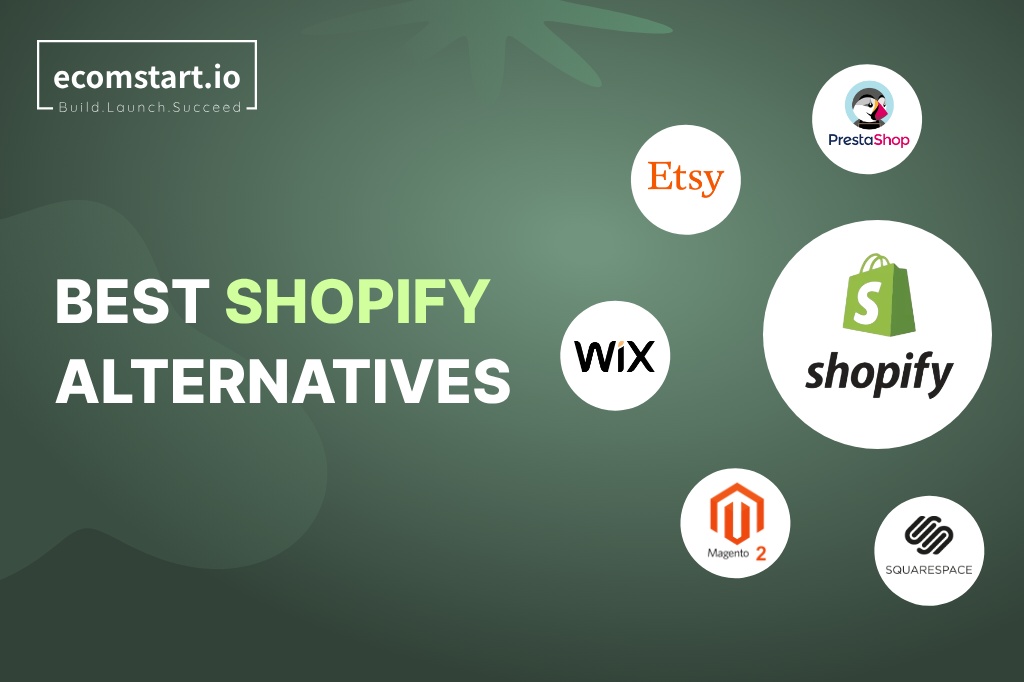
Though Shopify is a one-of-a-kind eCommerce platform, it certainly isn’t a one-size-fits-all solution for everyone. Whether you are encountering setbacks while scaling up your Shopify store or simply want to look at other Shopify alternatives, you have come to the right place.
With years of enabling worldwide merchants to succeed in eCommerce, the eComStart team has wrapped up a list of 15+ all-time best Shopify alternatives for your sake! (many of which we bet you might not even hear yet).
Amped up? Let’s dive in!
1. An overview of Shopify
If you are a newbie, let us get you ‘on board’ with foundational knowledge and insights into Shopify:
💡 What is Shopify?
Shopify is a hosted eCommerce platform. This means you pay Shopify a recurring licensing fee to host your website securely on the Shopify server without having to host a website on your own, like open-source platforms.
Recommended reading:
- Shopify Pricing Plan: Pick the Best Plan for You
- Shopify vs Shopify Plus: Which is Your Perfect Match?
- Shopify 3 Months for $1: How to Claim The Deal & Start Selling Online
💡 How popular is Shopify?
It’s pretty popular. Over 4.6 million live eCommerce websites are using Shopify, making it one of the most popular eCommerce platforms in the world.
💡 Why is Shopify popular?
Many said Shopify is famous for its ease of use. However, from our view, that’s not the whole picture. Besides its beginner-friendly interface, brands trust Shopify because of its robust built-in eCommerce features and an extensive App Store of 8,000+ apps.
For those of you who have read our selling on Shopify review, you would know that Shopify might have some drawbacks despite its fantastic features.
Therefore, aside from considering Shopify, it could be beneficial to explore additional options to broaden your choices. This way, you can make a more informed decision. While Shopify remains a viable choice, you may discover another platform that better aligns with your needs and preferences.
💡If you haven’t open your Shopify store, now is the best time! Shopify is offering Shopify $1 for 3 months program, a deal that allow you to enjoy 3 days free trial plus 3 months with $1/month.
2. A glance at the 15 best Shopify alternatives
No. | Platform | Rating on G2 | Pricing per month | Full comparison |
|---|---|---|---|---|
1 | Wix | 4.2 (1,652 reviews) |
| |
2 | BigCommerce | 4.2 (499 reviews) |
| |
3 | Squarespace | 4.4 (1,055 reviews) |
| |
4 | WordPress | 4.4 (8,677 reviews) |
| |
5 | Magento | 4.0 (226 reviews) |
| |
6 | OpenCart | 4.3 (104 reviews) |
| |
7 | Weebly | 4.2 (459 reviews) |
| |
8 | Clickfunnels | 4.6 (391 reviews) |
| |
9 | Gumroad | 4.1 (15 reviews) |
| |
10 | Odoo | 4.1 (236 reviews) |
| |
11 | Webflow | 4.4 (559 reviews) |
| |
12 | Ecwid | 4.7 (392 reviews) |
| |
13 | Big Cartel | 4.2 (26 reviews) |
| |
14 | PrestaShop | 4.3 (151 reviews) |
| |
15 | GoDaddy | 3.9 (841 reviews) |
| |
16 | Volusion | 3.2 (65 reviews) |
|
3. Top 15 Shopify alternatives worth considering
3.1. Wix

If you are looking for a user-friendly Shopify alternative, Wix is the first name we’d love to introduce to you in today’s list. Wix’s clean dashboard and intuitive drag-and-drop editor allow even newbies to build a website without the sweating part.
But what we like most about Wix is that the platform is quite affordable compared to Shopify. Wix only costs you $17/month for personal websites and $29 for a lightweight eCommerce store. The platform also doesn’t charge you extra third-party transaction fees like Shopify does.
💡 Pricing: Wix has flexible pricing plans for various website types
- 1 general website plan: $17/month
- 3 online store plans: $29, $36, and $159/month
3.2. BigCommerce

Whether you are searching for Shopify alternatives for drop shipping or conventional eCommerce alike, BigCommerce is a contender that deserves attention. Built for growth-minded businesses, BigCommerce offers a suite of native tools ideal for stores that have outgrown simpler platforms.
The platform stands out for its enterprise-grade features available even on lower-tier plans, without the need for numerous additional apps. Plus, BigCommerce supports a wide array of sales channels, including social media and various marketplaces, providing a truly omnichannel experience.
💡 Pricing: As the best Shopify alternative, BigCommerce’s pricing plans are familiar with Shopify.
- Standard: $39/month
- Plus: $105/month
- Pro: $399/month
3.3. Squarespace
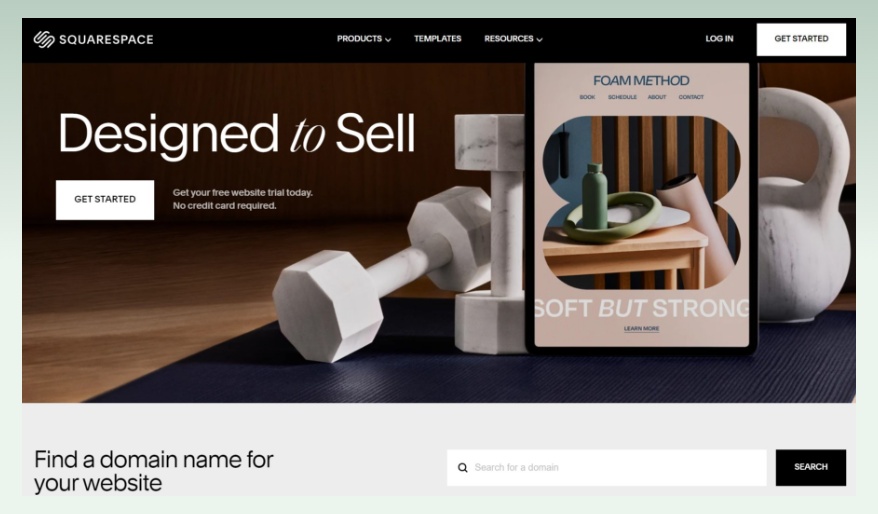
Did you know it only takes your potential customers a millisecond to form their opinion of your website? Thus, if you want to craft a website that catches your target audience’s attention, Squarespace is a top-tier alternative for Shopify of all time.
With various responsive templates and advanced design capacity, Squarespace should be a go-to choice for bloggers, artists, or any who want to build a visual-oriented website. You can adjust your typography, product display, page animations, etc., easily using Squarespace’s built-in drag-and-drop editor.
💡 Pricing:
- 1 general website plan: $25/month
- 3 online store plans: $36, $40, and $72
3.4. WordPress
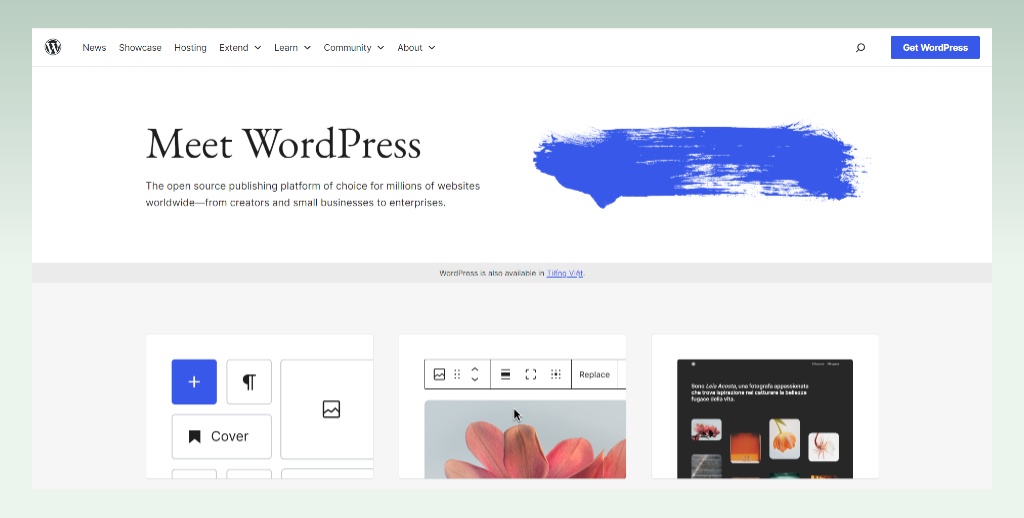
There is no way we miss WordPress when it comes to Shopify alternatives open source. However, it should be noted that WordPress doesn’t offer any sales features. Instead, you must install the WooCommerce plug-in in order to enable eCommerce functionality for your WordPress site.
WordPress with WooCommerce is particularly effective for those who already have a website on WordPress and want to add an online selling component. It’s also a cost-effective solution since WooCommerce is free to use, though you might incur costs for additional plugins and themes to extend your store’s functionality.
💡 Pricing: As one of the best free Shopify alternatives, WordPress and WooCommerce cost you nothing to install. However, you might need to pay $15 – $300+ per month for hosting costs, buying an SSL certificate, template, plug-ins, etc.
3.5. Magento
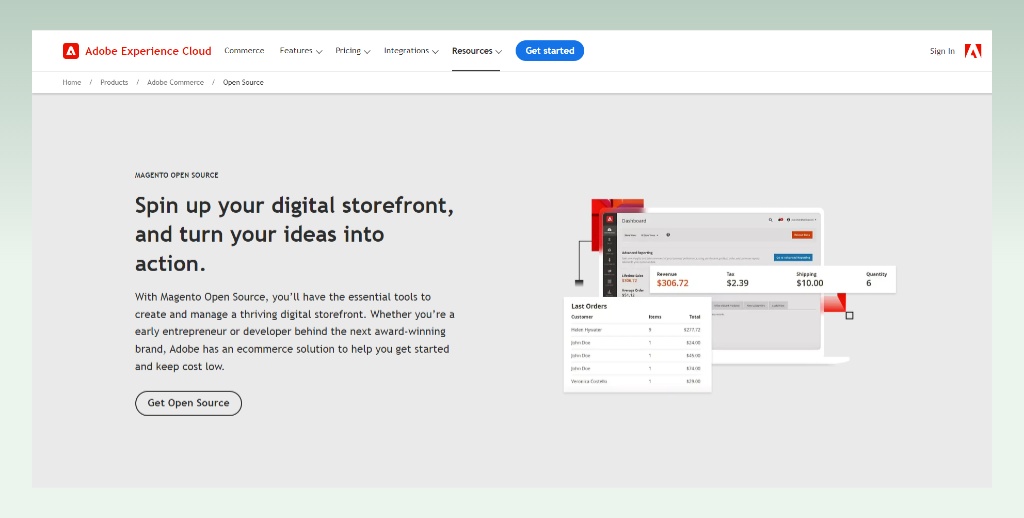
A ‘big fish’ encountering the limits of Shopify while scaling up your online store? Then you might be looking for a platform that offers flexibility and advanced eCommerce functionality. If that’s the case, Magento is the way to go.
As one of the best Shopify alternatives, Magento offers robust SEO capabilities and extensive customization options via HTML/CSS editing, giving you total control over the design and feel of your store.
💡 Pricing: Magento is free to install. However, the cost of hiring experts, website development, and agencies can add up to $1,000+ per month.
3.6. OpenCart
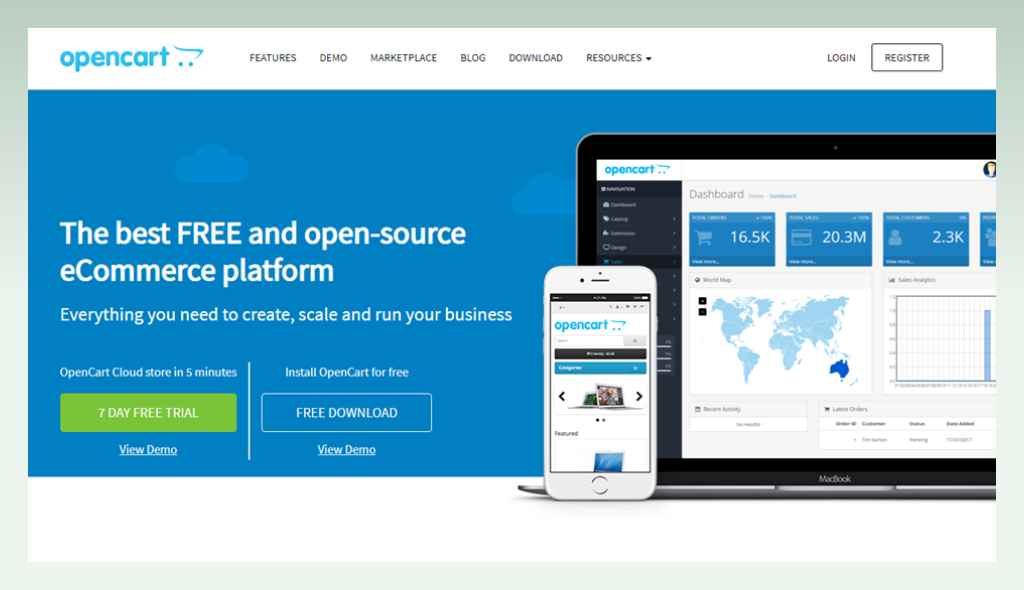
Like WordPress and Magento, OpenCart is another open-source platform we brought to today’s list.
OpenCart stands out with features like multi-store management from a single admin panel, various shipping provider integrations, guest and registered user checkouts, recurring payments, and comprehensive SEO tools.
💡 Pricing: Same with WordPress. But the cost of managing an OpenCart website is a bit more affordable at $10 to $150 per month.
3.7. Weebly
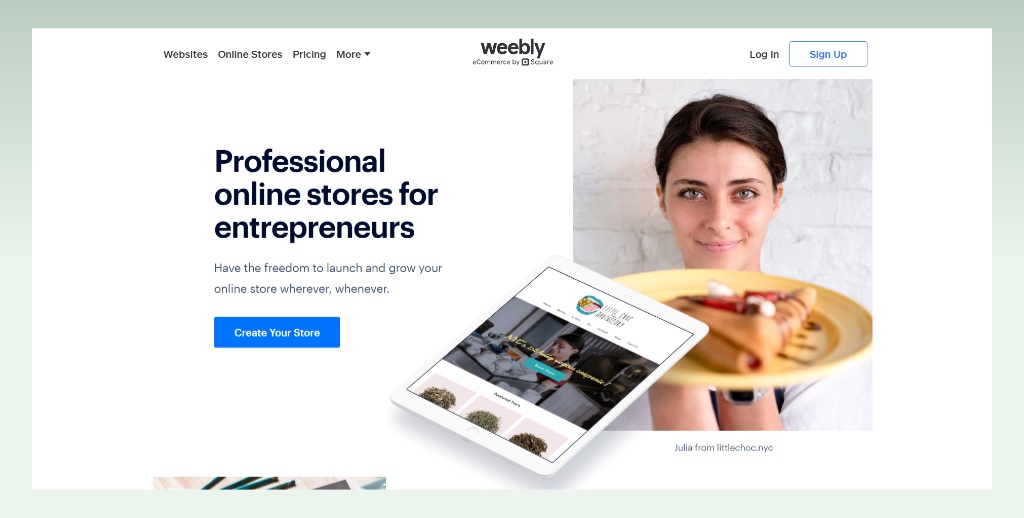
Are you striving for an affordable, easy-to-use eCommerce platform? If that’s the case, Weebly is one of the best Shopify alternatives you shouldn’t miss out on.
Weebly boasts a straightforward, drag-and-drop interface that makes site creation accessible for even beginners. Besides, Weebly’s affordability is also a plus, with free themes and modestly priced plans with its lowest plan only costing you $16/month.
And for those of you who don’t know it yet, Weebly’s eCommerce features are powered by Square. This includes inventory management, an automatic tax calculator, and integrated shipping tools.
Of course, compared to Shopify, Weebly is behind in terms of sales & marketing features. But if you want to easily build a website with adequate eCommerce features, Weebly is nothing but the right choice.
💡 Pricing: Weebly costs you $13/month to build a personal website and $16 or $29 to build an eCommerce website.
3.8. Clickfunnels

Clickfunnels is another worth-considering option when comparing Shopify vs competitors. With a starting price of $147 per month, Clickfunnels offers a variety of pre-built funnel templates to suit your different needs and wants.
The platform is especially effective for marketers of digital products, memberships, or services, offering robust features for one-click upsells and comprehensive marketing sequences.
Pricing: Clickfunnels has three pricing plans:
- Basic: $147/month
- Pro: $197/month
- Funnel Hacker: $297/month
3.9. Gumroad
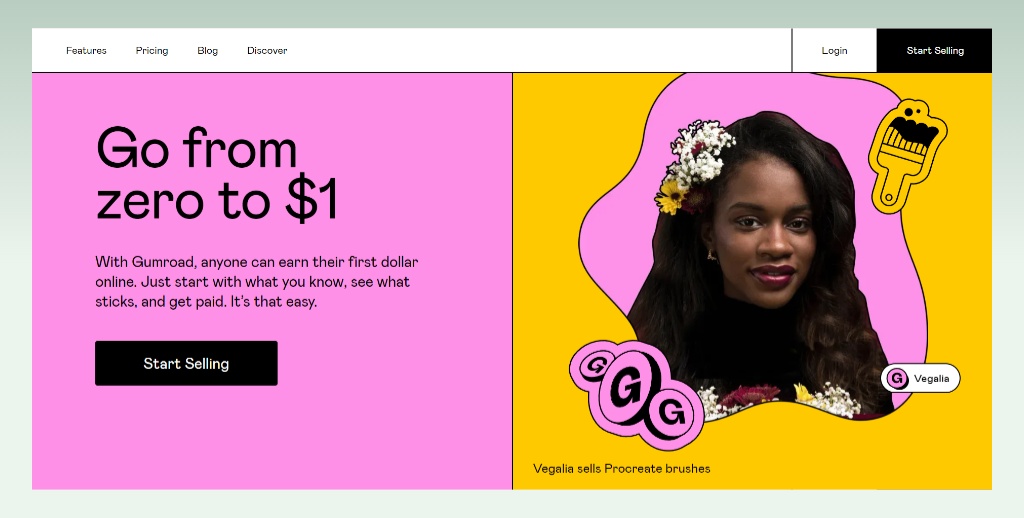
If you are planning to sell digital products like eBooks, downloads, online courses, et,c. instead of physical ones, Gumroad would be one of the top-notch Shopify alternatives.
With features designed for memberships and subscriptions, plus the ability to accept multiple currencies, Gumroad is a compelling platform for digital creators.
💡 Pricing: Gumroad charges you a 10% transaction fee for each sale you make.
3.10. Odoo
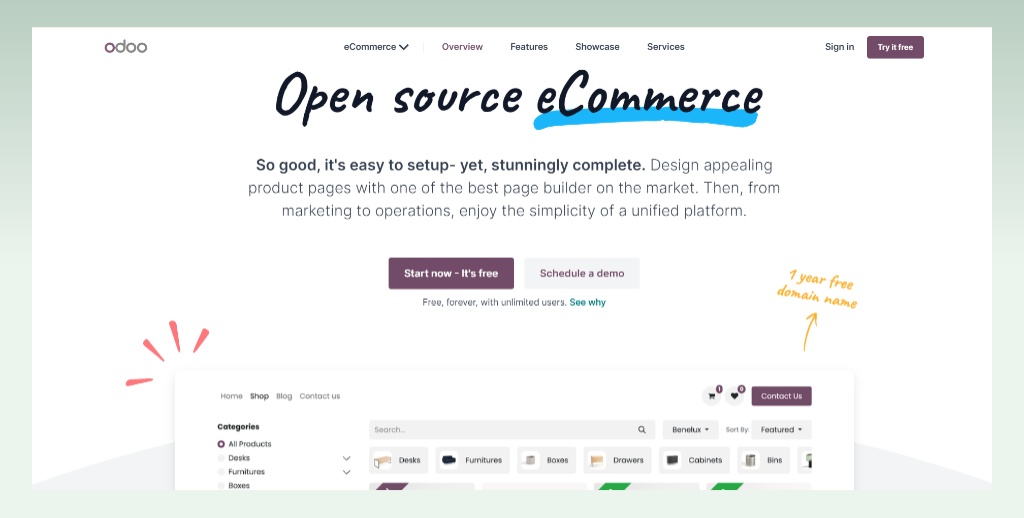
Though not as popular as big names like BigCommerce, WooCommerce, or Wix, Odoo is still a top Shopify alternative we’d love to bring to the table.
Unlike typical eCommerce platforms, Odoo wraps eCommerce, CRM, and ERP into one seamless package, making it a standout for businesses seeking depth in their operational tools.
Odoo has a free forever plan to let you test out one of its apps for free. To unlock a full suite, you’d need to be on a paid plan: $31.1 or $46.8/month. Though it sounds cheaper than Shopify at first, it’s the pricing per user.
💡 Pricing: Odoo has one free plan for you to test out one app’s functionalities. To unlock all apps in Odoo ‘ecosystem’, you have to subscribe to one of their paid plans:
- Standard: $31.10/user/month
- Custom: $46.80/user/month
3. 11. Webflow
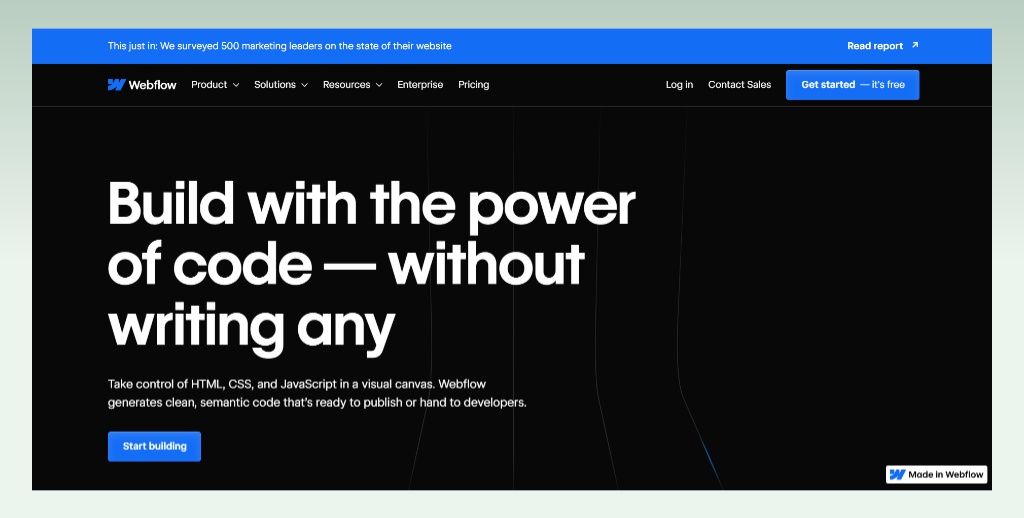
If you are after a visual-first platform that empowers you to turn your store into a piece of artwork, Webflow is the ultimate solution we pick for you.
With over 2,000 well-responsive templates and extensive web design functionality, Webflow gives you granular control over how your web store should look and work. For instance, you can add eye-catching animations, hover effects, etc., and adjust an element to pixel precision like Figma or Adobe Photoshop.
💡 Pricing: Webflow’s pricing structure is a bit complex.
- For general websites, Webflow offers 1 free plan and 3 paid plans starting from $14 – $39
- For eCommerce sites, Webflow lets you choose from 3 plans, ranging from $42 – $235
3.12. Ecwid

If you are hosting a website with Wix, Weebly, Jumla, or Squarespace and now want to enable eCommerce features on your website, we couldn’t think of a better name than Ecwid.
The name ‘Ecwid’ is actually a combination of ‘eCommerce’ and ‘widget.’ Simply put, if the idea of migrating your website to another purposely built eCommerce platform freaks you out, Ecwid is a life-saver.
For example, if you want to add lightweight eCommerce functionality to your blog site, you can add an eCommerce widget to your site with Ecwid. Afterward, you can add products, accept payments, manage orders, etc.
The awesome thing about Ecwid is that it works for all websites, unlike WooCommerce– which only works for WordPress websites.
💡 Pricing: Ecwid has one free plan that lets you add 5 products and basic eCommerce features. For more advanced needs and products, you’d have to be on Ecwid’s paid plans:
- Venture: $25/month (100 products)
- Business: $45/month (2,500 products)
- Unlimited: $105/month (unlimited products)
3.13. Big Cartel
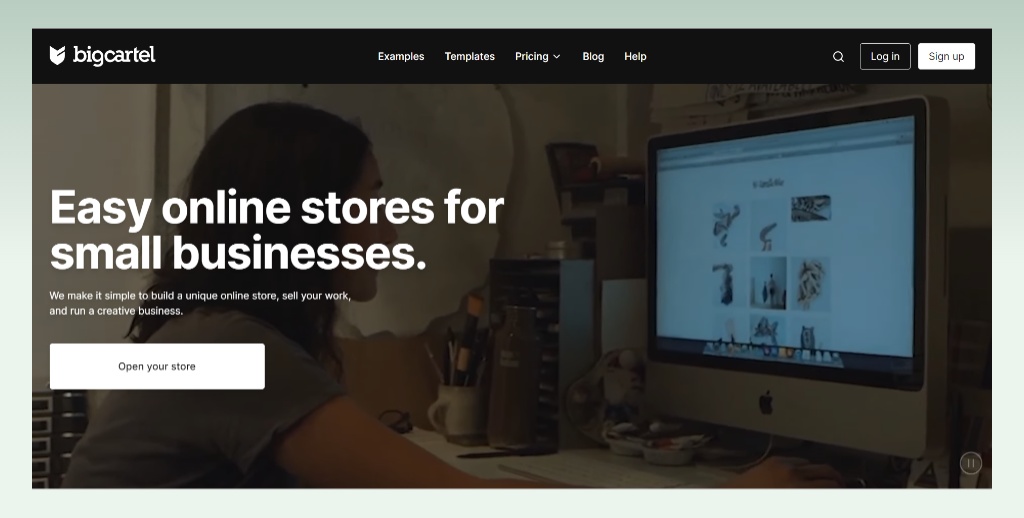
Are you an artist, freelancer, or independent creator who wants a simplified platform to manage your online store? If so, Big Cartel is among the superb Shopify alternatives we’d love to suggest to you.
Big Cartel is designed with simplicity in mind, enabling you to set up a store quickly without overwhelming features. And though Big Cartel doesn’t offer as many eCommerce features as Shopify, the platform’s affordable pricing plan makes it a solid choice for those on a budget.
💡 Pricing: Big Cartel has a free plan that enables you to add 5 products and accept online payments. To add more products and unlock more sales features, it has 2 paid plans:
- Platinum: $15/month (50 products)
- Diamond: $30/month (500 products)
3.14. PrestaShop
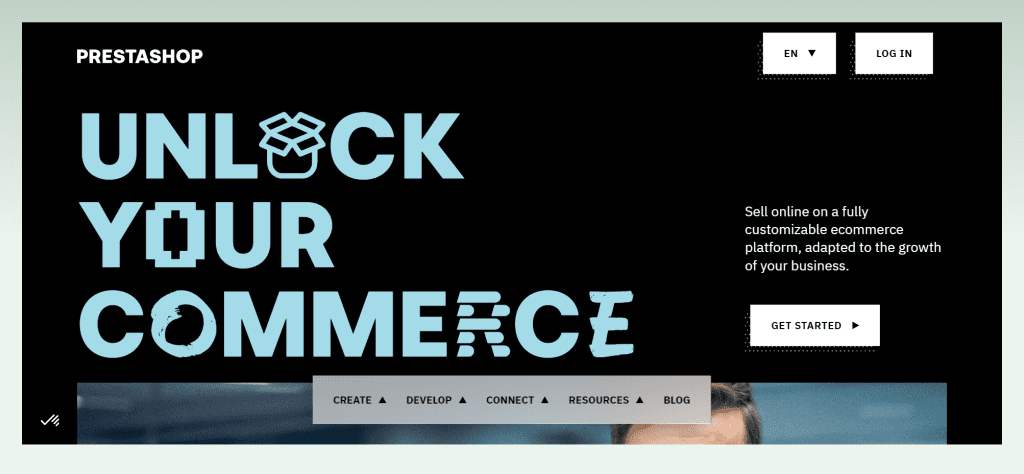
PrestaShop is a standout choice for stores aiming to create a unique online store. With a wealth of themes and modules, the open-source platform enables you to precisely build an eCommerce site the way you visualize it.
However, be alert that this customization comes at a cost. Unlike Shopify, setting up and customizing PrestaShop requires a certain level of technical expertise. While the software itself is free, operating costs can accumulate, especially when investing in premium features or professional hosting services.
💡 Pricing: The PrestaShop software is available for download at €29/month, which is equivalent to around $32/month. However, this cost doesn’t include important fees like hosting, SSL certificate, theme, etc.
3.15. GoDaddy
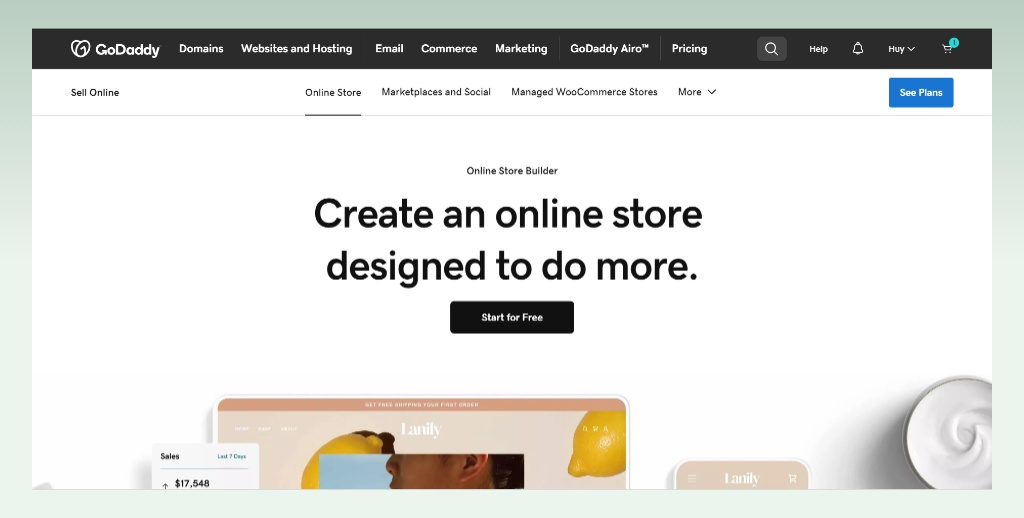
Let’s continue our list of the best Shopify alternatives by examining a ‘rising star’ in the SaaS eCommerce industry. Yup, it is GoDaddy we are talking about.
Known primarily for domain registration and web hosting, GoDaddy has recently expanded its services to include a website builder and robust eCommerce platform. Though GoDaddy is considered a newbie, its built-in sales features are quite diverse and quality.
For instance, at $20.99/month, you can set up email campaigns, add discount codes, and sync your products to Facebook Shop, Instagram Shopping, Etsy, eBay, etc.
💡 Pricing: GoDaddy lets you build a non-eCommerce website at $10.99/month or $14.99/month. To enable eCommerce functionalities, GoDaddy costs you $20.99.
3.16. Volusion

And last but not least, Volusion is a prominent name people usually mention when it comes to Shopify alternatives.
At its core, Volusion provides a user-friendly platform that simplifies the creation and management of online stores. With a robust inventory management system, Volusion allows you to track and manage your products, inventory, etc., without the sweating part.
Plus, if you’re a merchant with a data-driven mindset, you’d love Volusion’s in-depth analytics. The platform offers comprehensive tools to help you understand customer behavior, track sales trends, and optimize your stores for conversions.
💡 Pricing: Volusion lets you manage an online store on its platform from $35 – $299 per month:
- Personal: $35/month ($50K GMV*/year)
- Professional: $79/month ($100K GMV/year)
- Business: $299/month ($400K GMV/year)
- And if your annual GMV exceeds $400K, you have to move to its custom plan.
*Gross Merchandise Value (GMV) represents the total sales value of merchandise for a period of time. For instance, if you sell 10,000 shirts in 2023, each priced at $50, your 2023 GMV would be $500K.
4. Conclusion
All in all, while Shopify hits all the right notes– powerful eCommerce features, an intuitive dashboard, and great customer support, it isn’t built for everyone. Hence, if you aren’t sure Shopify is the right choice for you yet, we highly advise you to look around for more options.
eComStart hopes our list of the best Shopify alternatives will give you a broader understanding of popular eCommerce platforms so you can pick the most suitable one.
Don’t forget to check out eComStart.io and explore our eCommerce platform comparison articles if you are interested in blogs like this one.


